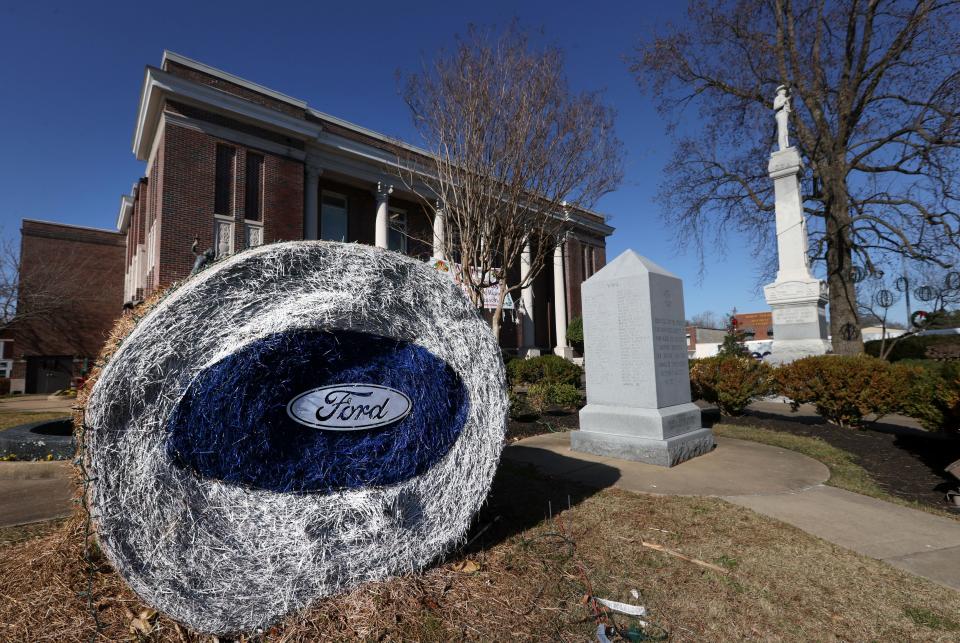Future Ford megasite workers deserve protection of their right to a private union vote | Opinion
With 5,800 much-needed jobs on the way, Tennessee has many reasons to be excited about Ford’s $5.6 billion electric truck and battery facility coming to Haywood County. But there is one key step in which the state could have better protected workers before greenlighting nearly $900 million in incentives to open the facility.
Unfortunately, the deal with Ford did not ensure that workers were guaranteed the right to a secret ballot if a union tried to organize the factory. Ford has a standing agreement with the United Auto Workers (UAW), a Detroit-based union with a lengthy history of corruption.
Ford’s agreement gives the UAW access to Ford employees and their home addresses. It also gives the union the ability to deny workers the right to a secret ballot election when the union organizes through a process called card check.
With card check, a union collects signature cards from a majority of employees in a worksite. It presents them to an employer, and the employer automatically recognizes the union. When it comes to protecting a worker’s privacy, this is a feeble alternative to the privacy of an election, where workers can vote for or against a union with a secret ballot.
Hear from Tennessee's Black voices: Get the weekly newsletter for powerful and critical thinking columns.
Unions have a dishonest history with voting
The National Labor Relations Board (NRLB) which administers elections that decide whether unions take hold in a workplace, has a weak record of protecting workers from union intimidation. In one case that reached the NLRB, an employee gathering signatures told another employee that she “had better sign a card because if she did not, the Union would come and get her children and it would also slash her car tires.”
The NLRB still counted the card as valid because, it said, the card solicitor was not working for the union and the threat could not be directly linked back to the union.

In another instance, a former union organizer testified before Congress that his union used inappropriate tactics to solicit cards: “Visits to the homes of employees who didn’t support the union were used to frustrate them and put them in fear of what might happen to them, their family, or homes if they didn’t change their minds about the union.”
Speaking about a UAW card check campaign at Freightliner Custom Chassis Corporation in 2002, Mike Ivey, a materials handler for the company, testified, “It wasn’t enough that employees were being harassed at work, but now they are receiving phone calls at home. The union’s organizers refuse to take ‘no’ for an answer. Some employees have had five or more harassing visits from these union organizers. The only way, it seems, to stop the badgering and pressure is to sign the card.”
Hear more Tennessee Voices: Get the weekly opinion newsletter for insightful and thought provoking columns.

Unions can also mislead employees by telling them that signing a card simply means they are asking for an election. This is false: Once a majority of cards are signed, it’s too late for an election, and the employer recognizes the union. Similarly, organizers can tell employees they are simply signing “information cards” ─ even though the fine print acknowledges they are authorizing a union to represent them.
Tennessee workers are fortunate to live in a right-to-work state where they cannot be forced to pay dues to a union. But even with right-to-work, employees and job creators are still susceptible to union intimidation and deception that can come with card check organizing.
It may be too late to protect Ford’s future employees’ right to a secret ballot because the deal is done. But Tennessee can make sure this doesn’t happen again.
State legislation has already been introduced to enact secret ballot protections which would guarantee that any future employer getting taxpayer incentives to move to Tennessee would be legally obligated to protect the rights of its employees.
Tennessee has done a great job protecting workers’ right-to-work. Now, it must also protect their right to a private vote.
F. Vincent Vernuccio is a senior labor policy adviser for Workers for Opportunity and president of the Institute for the American Worker.
This article originally appeared on Nashville Tennessean: How Tennessee can protect workers' right to a private union vote

